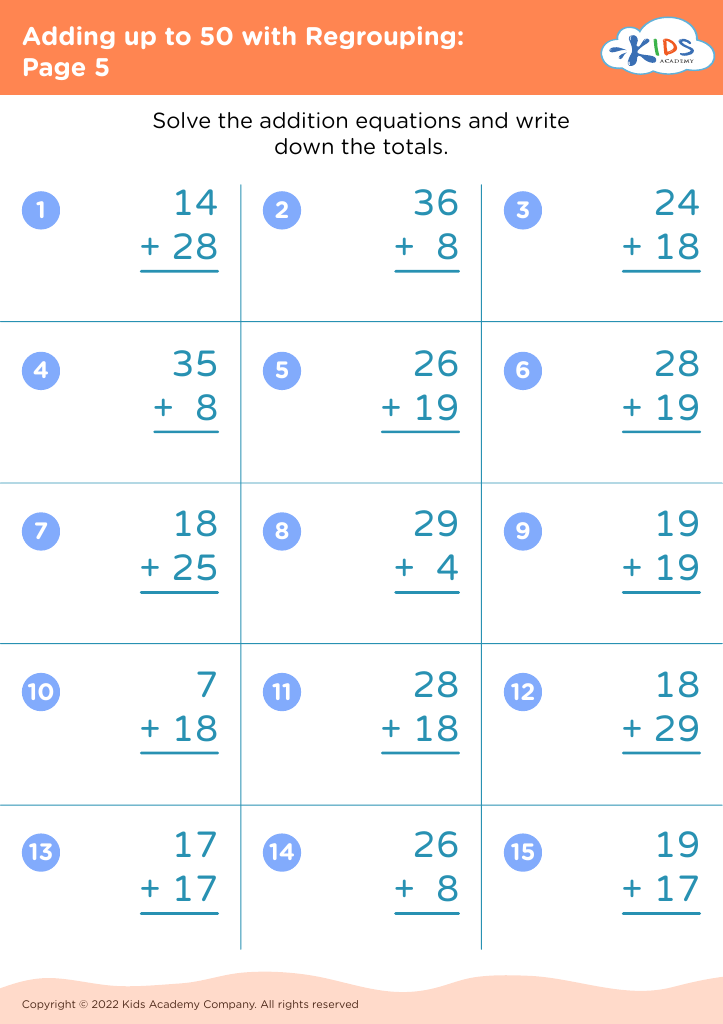Fraction comparison Adding up to 50 Worksheets for Ages 6-7
7 filtered results
-
From - To
Our "Fraction Comparison Adding up to 50 Worksheets" are specially designed for children ages 6-7. These engaging worksheets help young learners grasp the concepts of fractions and addition with exercises tailored to their developmental stage. Students will practice comparing fractions, adding up to 50, and developing essential math skills essential for later grades. Perfect for classroom use or at-home practice, these worksheets combine fun graphics with step-by-step instructions, making learning enjoyable and effective. Enhance your child's math abilities and confidence with our expertly crafted fraction comparison activities! Download, print, and watch your child's skills grow.
Parents and teachers should care about teaching fraction comparison and adding up to 50 to children ages 6-7 because these foundational math skills are critical in developing strong numerical literacy. At this age, children are in their formative years of learning; their cognitive abilities are rapidly developing, and they are highly receptive to new concepts.
Understanding fractions teaches students about the importance of parts of a whole, and how these parts relate to one another. This knowledge is not only crucial for future math topics, such as addition, subtraction, multiplication, and division of fractions, but also for real-world applications like measuring ingredients in cooking or dividing an item equally among a group.
Moreover, learning to add numbers up to 50 builds foundational addition and substructure skills and encourages mental math proficiency. It enhances problem-solving abilities, logical thinking, and concentration. Mastery of these skills at a young age boosts confidence and encourages a positive attitude toward learning more complex mathematical concepts in the future.
By prioritizing fraction comparison and addition in early education, parents and teachers set the stage for lifelong mathematical success. It equips children with critical thinking skills that are necessary for academic achievement and daily life.




















